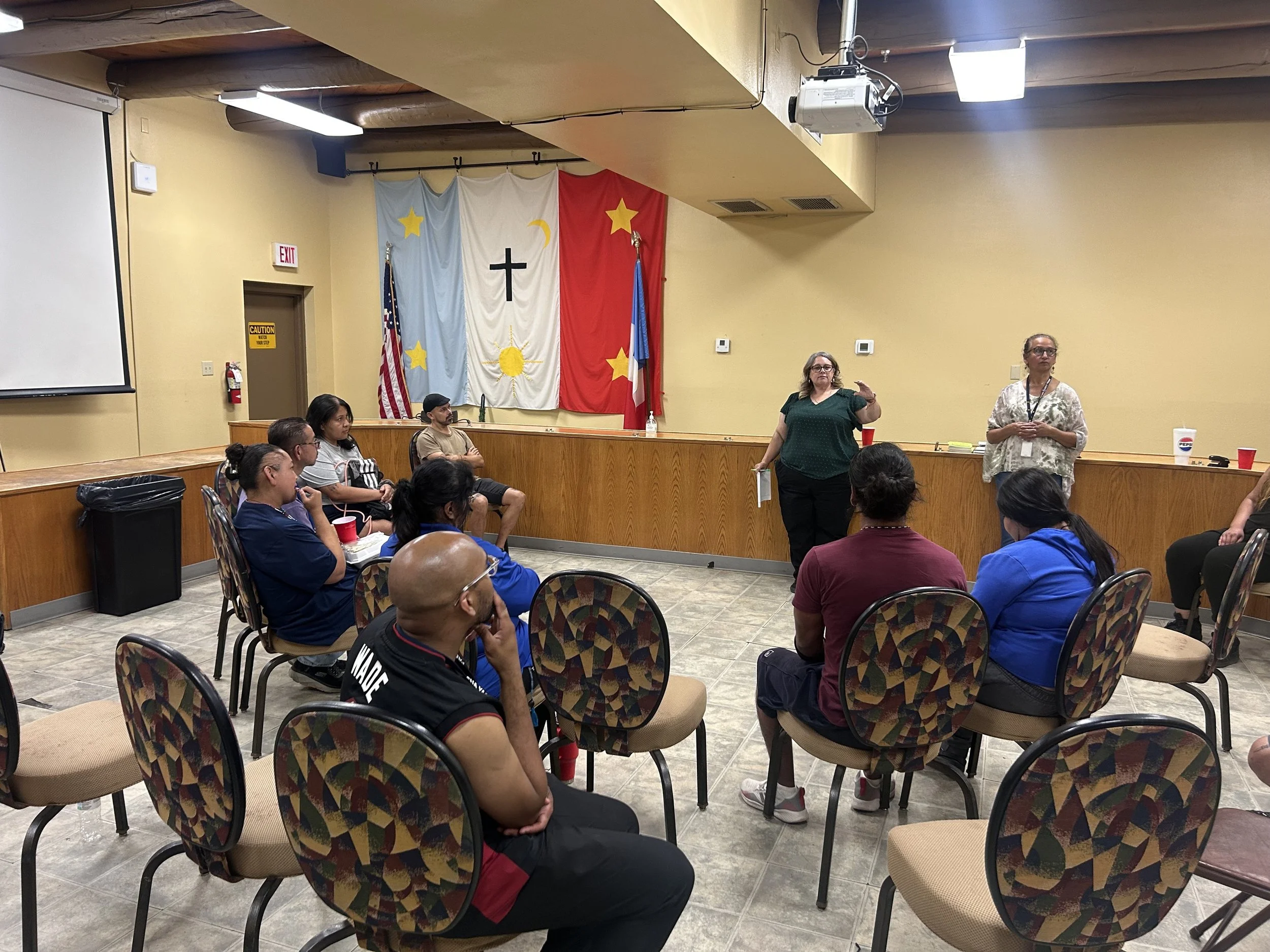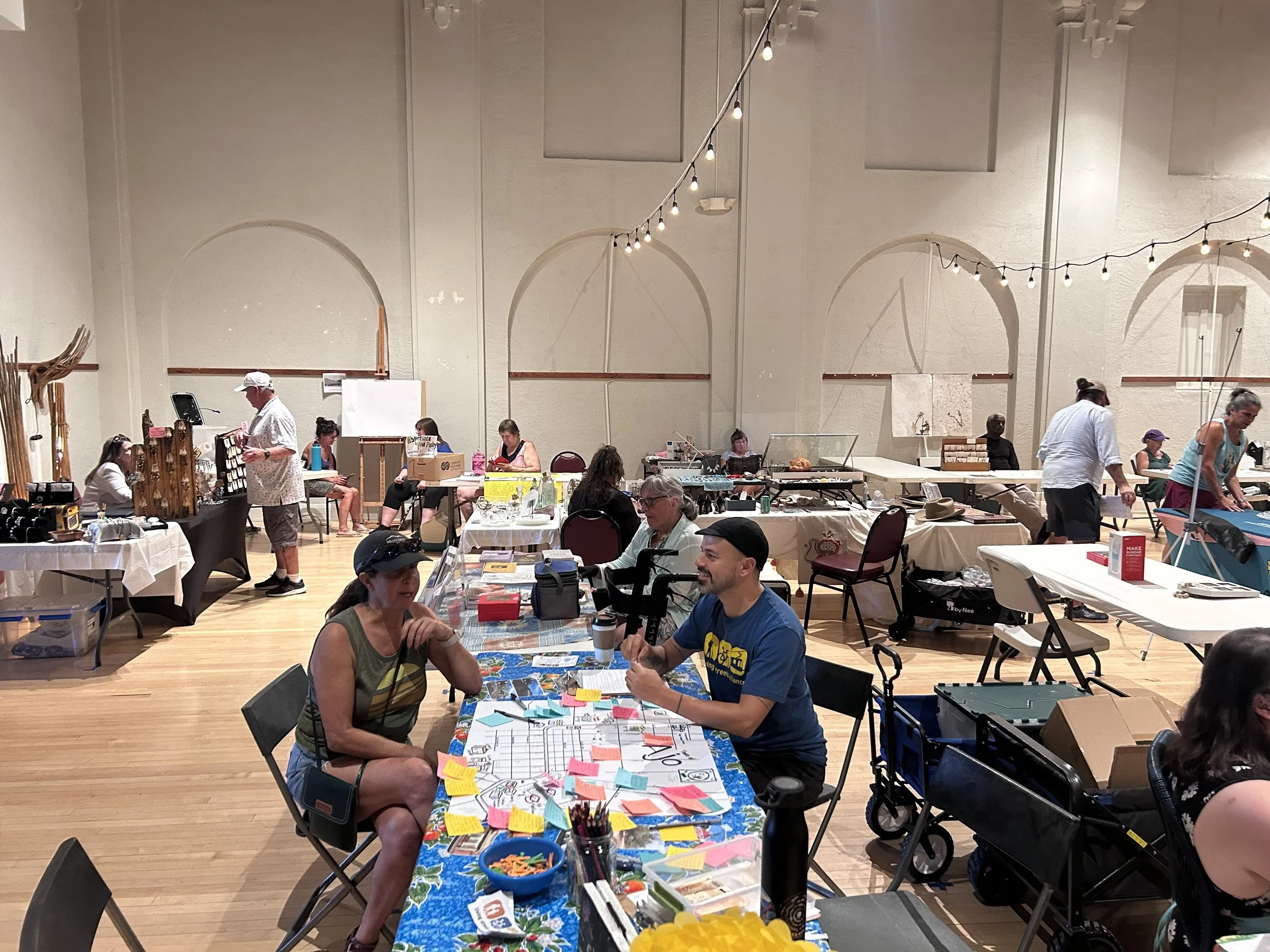People Are Experts in Their Own Lives: A Snapshot of Our Summer Engagement Events
What would make it more convenient to walk to your neighborhood grocery store? What improvements would make it safer to ride your bike to school? What’s it like when you ride the bus to your medical appointments, to the store, or to visit family?
These are everyday questions with real public health implications. How we get to school, work, the grocery store, or the doctor’s office shapes our physical and mental well-being, our ability to connect with others, and our overall quality of life.
This summer we spent time asking these types of questions to community members across Tucson and Pima County in partnership with the Pima County Health Department’s REACH program to create a landscape analysis of existing conditions and possible areas for improvements via programs, infrastructure and policy—all centered on people’s everyday experiences. We’re grateful to the REACH team for their partnership, their care for the community, and their trust in the process.
Here are some highlights:
In South Tucson we joined up with artist and advocate Mel Dominguez, co-owner of Galeria Mitotera, who regularly leads art workshops at the South Tucson Housing Authority and cares about his neighbors who walk, bike, and ride transit every day. Instead of an art class that day, we co-hosted a community discussion and small group sessions focused on identifying challenges and needs. People shared their deep love for South Tucson and its walkability, while also pointing to clear priorities like sidewalk improvements and cleaner, better-equipped bus stops, especially with trash cans and regular maintenance.
In the Sunnyside neighborhoods on the Southside we partnered with Familias Unidas Ganando Accesibilidad (FUGA), and hosted an interactive engagement station as part of their once-a-month Friday night ride. Sophia from FUGA suggested we use a fun, hand-drawn neighborhood map to spark conversation, so we followed that lead and that map style became a staple for future events.
Before the ride, Fugista Flor Espinoza gave powerful remarks about the long-standing impacts of industrial development on the Southside and how FUGA grounds their rides in the connection between land, community, and justice. During the ride, David “Droopy” Contreras shared his story of recovery from a serious bike crash and led us through favorite local routes. Along the way, we ran into David Garcia from Barrio Restoration, who told us about their collaborative alleyway food planting project—a beautiful example of reclaiming space for community health.
In the Amphi neighborhood we partnered with the Amphi Women and Girls Union (AWGU) who wanted to use this effort to be mutually supportive of their youth development and education. So, we spent a few extra sessions working with three young women from their group so that they could lead the neighborhood walk-audit as part of their event. On the day of the event, a breakfast party at an apartment complex, they lead over 15 of their neighbors in a walk-audit around the block, having conversations with their neighbors about pedestrian infrastructure, safety, and community needs in three languages! English, Spanish, and Dari.
After the walk, we celebrated with music, food, and free bike repair along with a raffle to give away 8 bikes. The kids had a blast and we hope to return in December for a community-led bike ride and Artisan Market with Building Bridges Community Center. Shout out to the youth leadership of the AWGU for stepping into something new! Shout out to the bike mechanics that joined, who always make events like even more special!
In Old Pascua, Brandon Varela, curator for the Old Pascua Museum and Yaqui Cultural Center, hosted a Mural Tour along with a facilitated community conversation about belonging, walkability, and sense of safety in our neighborhoods. It lead to a thoughtful full-room conversation about the incoming Casino Del Sol Vahi Taa’am and how the flood of car traffic could impact the neighborhood, the desire for more healthy grocery options that could be walked to, and a thoughtful analysis from a longtime bus driver who lives in the neighborhood about why Tucson should keep transit fare-free.
A lot of the ideas and sentiments shared will be incorporated into a new mural at the Richey Resource Center as part of the upcoming Cyclovia Tucson activities.
In the Los Ranchitos neighborhood we partnered with Los Amigos Technology Academy and their librarian Jennifer Flores for a back-to-school open house event. We talked with tons of families, many of whom have students who have been amongst the 100+ regular participants in our bi-weekly Walking School Bus program. Many of these families have also previously engaged in ongoing conversations with us and the City of Tucson on making improvements to Drexel Road through Prop 407. Shoutout to the staff and families at Los Amigos for continually prioritizing these types of conversations!
In New Pascua we partnered with the Pascua Yaqui Tribe’s Department of Community and Economic Development for a community walk and bike ride that culminated in a group discussion about public transportation around New Pascua and between the reservation and city of Tucson. The 30+ attendees took turns in a seated circle in the tribal council chambers offering their ideas about improving bus service, and also about housing needs, social services, and improving access to the local health center.
Irma and Erin at the Pascua Yaqui Tribe’s Department of Community and Economic Development have been outstanding partners for several years, and we are so grateful we got to connect in this way.
In Ajo, we talked in-depth with people attending the Escape the Heat art event with the International Sonoran Desert Alliance (ISDA), who had lots to share about their love for Ajo. Ajo is a beautiful and tight-knit town where residents relish their neighborhood walks and bike rides. People shared passionate and creative ideas about what would make it safer and more accessible to walk around town to the historic plaza or the community clinic, like ADA improvements to sidewalks, strategizing how to deal with loose neighborhood dogs, and surprisingly that the town’s one streetlight should be removed!
This project allowed us to venture out to Ajo, beyond our typical Tucson boundaries, and was a nice reminder of the wonderful communities all around Pima County. We enjoyed the new partnership with ISDA and look forward to what we could do together in the future.
For the final report, we cross referenced all of the community feedback with previously collected safety data, crash, injury, and fatality data, and a review of upcoming infrastructure projects in each of the zones. We hope to share the full report with you soon! Beyond the data, we came away with a strong reminder that people really are eager to talk about these things and are ready to see the changes they need. These recommendations also show the deep need for policy changes that make our streets more equitably accessible and safe for everyone as well as the importance of involving community members in decision making processes.
Thank you to everyone who came out, shared a story, collaborated, showed us around, or stayed late in a meeting to push for something better.








